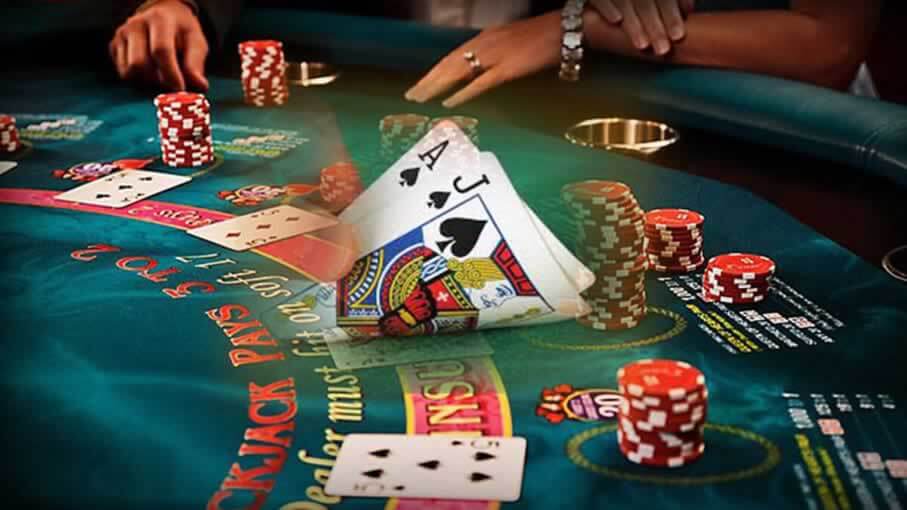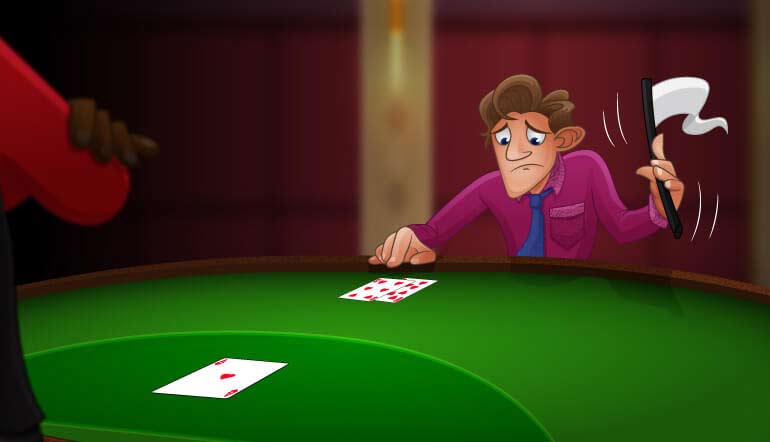Blackjack Insurance Vs Surrender
Insurance is a word that most people are familiar with. You buy insurance just in case you get in a car accident with an uninsured driver, just in case you die and just in case you break your arm after falling off your ladder while hanging Christmas lights. You pay a premium up front and if or when the inevitable happens, the insurance companies takes care of (most of) the cost.
Blackjack insurance is a term that confuses a lot of people, especially novice players. What is even more confusing is knowing when to buy blackjack insurance. Experts usually say purchasing it is a bad bet and should be avoided at all costs, but that is not always the case. The CCC granted the petition, effective January 16, 1990, amending the rules of the game so that any Atlantic City casino may allow players to surrender, provided the casino allows surrender on all of its blackjack tables. Surrender is one of those options, like insurance, that card counters can exploit profitably, while the casino makes money. Blackjack Rule Variations Introduction. Rule variations will have an effect on the player's expected return. The numbers below show the effect on the player's return under various rules and after taking into consideration proper basic strategy adjustments.
With traditional insurance in mind, I think a lot of players confuse what insurance is as a side-bet in blackjack. Insurance (in blackjack) is not as good as it appears. My goal for this article is to explain exactly what blackjack insurance is, and why you should avoid it like the plague.
Insurance is a side-bet that dealers offer to players whenever they have an ace showing. The idea behind insurance is to protect your bet just in case the dealer has a blackjack.

How Does Insurance in Blackjack Work?
When a dealer has an ace showing they’ll ask you if you want insurance. This is before they check for a (natural) 21. If you take the insurance you can wager as much as half of your original bet. For example, if your original bet was $10 you can pay as much as $5 for insurance.
Once the insurance bet has been placed the dealer will then check for a blackjack. If the dealer has a blackjack you’ll be paid 2-1 on your money (insurance bet). If you wagered $5 you’d receive $10. However, unless you have a blackjack, too, you will still lose your original bet, breaking even overall. If the dealer doesn’t have a blackjack, you’ll lose your insurance bet and will still have the opportunity to play your hand like normal.
Another insurance-like situation you may find yourself in is if you have a natural blackjack and the dealer has an ace showing. The dealer will offer you even money on your bet. In other words, if you bet the maximum of $5 insurance on a $10 bet and the dealer has a 21, you’ll push on the blackjack, but win 2-1 on your insurance. So you’d be up $10. However, if you take the insurance and the dealer doesn’t have a blackjack, you’ll lose your $5 bet and win 2-1 on your blackjack ($15) for a total of $10. Either way, you walk away with an even money win.
Insurance - Blackjack Online
So… Should You Take Insurance or Even Money Side-Bets?
No. Experts recommend that you pass on insurance bets.
The reason why passing on insurance in blackjack is recommended is because the dealer will only show up with a blackjack 30.87% of the time. However, to breakeven on the insurance bet you need a 10-point card to show up 1 out of 3 times (33%). So every time you take this bet you’re taking a minor loss over the long run, assuming you max your insurance bet (half the original).
There are exceptions, of course. For example, if you’re a card counter than you would know how many 10-point cards are left in the deck. So if the deck is rich with 10-point cards it would make sense to take the insurance bet. If the deck is poor with 10-point cards you’d pass on insurance.
Blackjack Insurance Vs Surrender Life Insurance

You could even make the argument that you don’t have to be a card counter. In fact, if you simply pay attention to the cards dealt and notice that there are more 10-point cards then you could pass on insurance, or vice versa. The difference here (from counting cards) is that you’re not as accurate, and would likely be making a breakeven play, or at best a slight win/loss.

At the end of the day, though, taking insurance is going to be a -EV bet for the majority of players. To give you a better idea of how insurance affects the house edge, just look at these numbers:
- 1 Deck – 5.88%
- 2 Decks – 6.8%
- 4 Decks – 7.25%
- 6 Decks – 7.4%
- 8 Decks – 7.47%
Not very appealing, right? So unless you know how to count cards you should avoid taking the insurance bet in blackjack like the plague. Unless you like losing, of course.

Blackjack insurance is a term that confuses a lot of people, especially novice players. What is even more confusing is knowing when to buy blackjack insurance. Experts usually say purchasing it is a bad bet and should be avoided at all costs, but that is not always the case. But before we get into that, lets us talk about what blackjack insurance is.

What is Blackjack Insurance?
If the dealer shows an Ace during a round of blackjack, he or she will offer the player a chance to purchase insurance. If you buy the insurance and the dealer’s next card is a 10, the dealer will have a blackjack, and you would have won the insurance bet. This bet pays 2:1, but the downside is that you lose your original bet.
An insurance bet is a side bet, meaning you can take it or leave it. The buy-in for blackjack insurance is usually half the amount of your original bet. For example, if you wager £50 before the dealer shows an Ace, your insurance bet will be £25.
Why You Should Take Insurance in Blackjack
Some would argue that taking blackjack insurance is beneficial because you will recover at least half of your original bet should the dealer get the ace-10 combination. For instance, if you make a £50 wager and purchase insurance for £25, the dealer’s next card has to be a 10 for you to win back half, which is £25.
Why You Should Not Take Insurance on Blackjack
Most experts advise players to stay away from buying insurance because the chances of the dealer getting an Ace is 9:4. These odds indicate that the math is not on the side of the player. There are 52 cards in a single deck, and only four cards out of every 13 cards have a value of 10. On average, this means the dealer will get the ace-10 combination four times when he or she plays 13 instances – the dealer will lose 9 out of those 13 times. For experts, this makes an insurance side bet not worth it.
When Should You Purchase Blackjack Insurance?
There is only one scenario in which a side bet should be taken: when you also have a blackjack. By insuring your own blackjack, you guarantee a positive return should the dealer also get a blackjack. In this scenario, you will tie with the dealer (also known as a push), meaning your original wager remains in the betting circle, but since you won the insurance bet, you will collect the 2:1 payout. Experts will still say this is a bad bet because this strategy ignores all the math and relies more on your gut feeling (unless you are a card counter, you are relying on chance that the dealer will get a blackjack after showing an Ace).
Blackjack Side Bets
So, there you have it: only buy blackjack insurance when you have blackjack, and the dealer is showing an Ace. This will guarantee a positive return should the dealer get a blackjack. Even though experts might advise against it, the logic behind it is still sound if you are expecting an ace-10 combination.